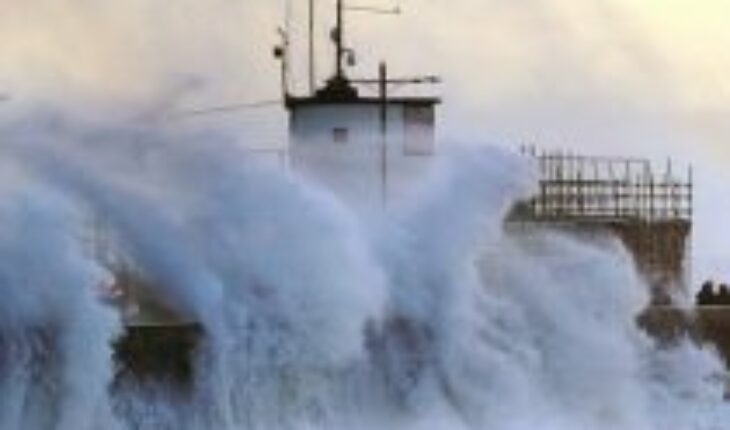UK Secretary of State for Security Damian Hinds is calling on the population to “stay safe”, stressing that the army was ready to deal with the effects of Eunice, one of the most violent storms in three decades.
The south of England recorded record winds of up to 195 km per hour, the British meteorological office reported, while on the English coasts the storm raised a violent wave and the streets of London were almost deserted.
Numerous flights were cancelled at airports across the country and rail companies asked passengers to “not travel”. More than 70,000 homes were deprived of electricity in England and about 80,000 in neighbouring Ireland.
Authorities warned of the risk of severe flooding and “particularly high risk” of motorway accidents and numerous schools remained closed pending a crisis meeting of the British government in the afternoon.
Storm over Germany, netherlands and Denmark
After hitting the UK, the storm is expected to head towards Denmark, where it was decided that trains will run at a slower speed as a precaution and the Storebaelt bridge, one of the longest in the world, will almost certainly have to be closed for most of the night, its operator warned.
In France, on Friday morning the storm was already causing waves of four meters in Brittany, according to Météo France, which put five departments on orange alert with wind gusts of up to 110km / h in the northwest, which could exceed 140km / h locally on the coast in the afternoon. French rail operator SNCF also announced disruptions to its regional lines.
In the Netherlands, the weather service issued a red alert on Friday and hundreds of flights were canceled, according to media.
In Belgium, the authorities have advised citizens to limit their movements as much as possible. Rail traffic is also interrupted and many schools shortened their working hours.
Trains and trams suspended in Germany
In Germany, trains were suspended in the north, including Bremen and Hamburg for the second day in a row, according to Deutsche Bahn.
Eunice hits northern Europe after the continent was already hit by heavy storms in recent days, such as Dudley killing five people in Poland and Germany on Thursday.
Although climate change increases and multiplies extreme events in general, its impact is not so clear in the case of violent winds and storms (excluding tropical cyclones), the number of which varies greatly from year to year.
The latest UN Climate Experts Report (IPCC) published in August estimates, with a very low degree of certainty, that there may be an increase in storms in the Northern Hemisphere since the 1980s.
It also estimates that storm-related rainfall is likely to increase, but storm intensity, including wind speed, will remain more or less the same.
Storm Eunice hitting Europe is “one of the most violent in three decades”
February 18, 2022 |





